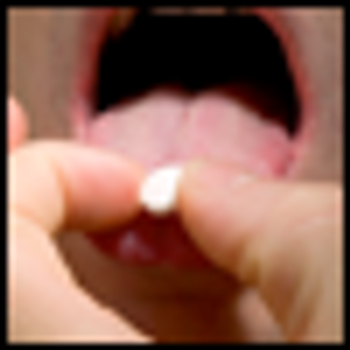
News


/* Rotator Styles */#wrapper { z-index:1; width:420px; height:317px; border-top:1px solid #92a5bc; border-bottom:1px solid #92a5bc; border-left:1px solid #92a5bc; border-right:1px solid #92a5bc; margin:0 auto;}#rotator { z-index:2; margin-top:0px; color:#000; position:absolute; padding-bottom:0px; margin:0; font-size:16px;}/* Tabs */ul.ui-tabs-nav, li.ui-tabs-nav-item, li.ui-tabs-nav-item a:link, li.ui-tabs-nav-item a:visited { margin:0px; padding:0px; border:0; outline:0; line-height:.5; text-decoration:none; font-size:90%; list-style:none; float:left; font-family:Arial, Helvetica, sans-serif; font-weight:strong;}ul.ui-tabs-nav { margin-top:290px; bottom:0px; left:0; z-index:2; width:420px; background: url(http://imaging.ubmmedica.com/all/editorial/psychiatrictimes/swf/Featured/images/uitabsbg61.gif) repeat-x bottom right; border-top:1px solid #92a5bc;}/* Non-Selected Tabs */li.ui-tabs-nav-item a:link,li.ui-tabs-nav-item a:visited { font-size:.8em; font-weight:normal; color:#999; background: url(http://imaging.ubmmedica.com/all/editorial/psychiatrictimes/swf/Featured/images/uitabsbg61.gif) repeat-x bottom left; border-left:1px solid #FFF; border-right:1px solid #c5ced9;}/* Hovered Tab */#rotator .ui-tabs-nav-item a:hover,#rotator .ui-tabs-nav-item a:active { background: url(http://imaging.ubmmedica.com/all/editorial/psychiatrictimes/swf/Featured/images/uiactivetabbg61.gif) repeat-x bottom left; color:#333;}#rotator .ui-tabs-nav-item a span { float:left; padding:1em; cursor:pointer;}/* Active Tab */#rotator .ui-tabs-selected a:link,#rotator .ui-tabs-selected a:visited,#rotator .ui-tabs-selected a:hover,#rotator .ui-tabs-selected a:active { background: url(http://imaging.ubmmedica.com/all/editorial/psychiatrictimes/swf/Featured/images/uiactivetabbg61.gif) repeat-x bottom left; color:#333;}/* Content Panels */#rotator .ui-tabs-panel { font-family:Arial, Helvetica, sans-serif; clear:left; position:bottom; color:#000; padding:5px 5px 5px 5px; height:290px;}#rotator .ui-tabs-hide { display:none;}#rotator h2 { padding-left:2px; padding-right:2px; color:#aa0000; font-weight:strong; margin:0; font-size:14px; line-height:.9em; font-family:Arial, Helvetica, sans-serif; text-decoration:none;}#rotator a { text-decoration:none;}#rotator p { padding-left:2px; padding-right:2px; font-size:11px; margin:0px; color:#333; text-decoration:none;}#rotator .btn_learn_more { float:left; height:26px; font-size:.9em;}/* Background Images */#rotator #fragment-4 { padding:0px;position:absolute;}#rotator #fragment-3 { padding:0px;position:absolute;}#rotator #fragment-2 { padding:0px;position:absolute;}#rotator #fragment-1 { padding:0px;position:absolute;}



Of the more than 250 million prescriptions written for psychiatric drugs in 2009 in this country, Xanax is the by far most popular. Nearly 50 million prescriptions were written for this benzodiazepine or its generic form last year.


Clearly, we all share the goals of respecting-not “medicalizing”-ordinary grief; as well as recognizing and treating clinically significant depression. We differ with Dr Frances in how to achieve these goals, while remaining faithful to the best available scientific data.

Are a history of complicated pneumonia and possible obstructive sleep apnea part of the DSM-IV exclusionary criteria for potential participants in anesthesia-assisted opioid withdrawal? How many alcoholic drinks a week does it take for a woman to be considered an at-risk drinker? These and more in this week's quiz.










Click here to register and receive these exclusive pdfs. After registering, you will be redirected to the page with the links to download.

Register with Psychiatric Times to receive these exclusive pdfs: "2010 Staff Salary Survey: Regional Data" and "What Should You Pay Staff?" Register Today - It's Free!







.right-arrow {border: 8px solid white;border-width: 8px 0 8px 8px;border-color: white blue;font-size: 0; /* needed for IE browsers, if this isn't set to 0 you will end up with a trapezoid */line-height: 0;display: inline-block;}.right-arrow a{border: 8px solid white;border-width: 8px 0 8px 8px;border-color: white blue;font-size: 0; /* needed for IE browsers, if this isn't set to 0 you will end up with a trapezoid */line-height: 0;display: inline-block;}.left-arrow {border: 8px solid white;border-width: 8px 8px 8px 0px;border-color: white blue;font-size: 0; /* needed for IE browsers, if this isn't set to 0 you will end up with a trapezoid */line-height: 0;display: inline-block;}.left-arrow a{border: 8px solid white;border-width: 8px 8px 8px 0px;border-color: white blue;font-size: 0; /* needed for IE browsers, if this isn't set to 0 you will end up with a trapezoid */line-height: 0;display: inline-block;} #tabbed_box_3 { margin: 0px auto 0px auto; width: 960px; } #tabbed_box_3 .tabbed_area { padding:0px; } #tabbed_box_3 ul.toolstabs { margin: 0px 0px 0px 0px; padding:0px; float:right; vertical-align:middle; } #tabbed_box_3 ul.toolstabs li { list-style:none; margin: 0px; } #tabbed_box_3 ul.toolstabs li a { display:block; background-color:#e9e9dd; color:#000000; padding-top: 0px; text-decoration:none; font-size:12px; font-family:Times New Roman; font-weight:bold; background-repeat:repeat-x; background-position:bottom; border:1px #ffffff solid; text-align: left; height: 59.5px; width: 174px; } #tabbed_box_3 ul.toolstabs li a:hover { background-color:#d1d5d8; } #tabbed_box_3 ul.toolstabs li a.active { background-color:#000000; color:#ffffff; background-repeat:repeat-x; background-position:top; border-bottom:1px; margin-bottom:0px; padding-bottom:0px; font-family: Times New Roman; font-size: 11px; } .content3 { padding:0px 0px 0px 0px; font-family:Arial, Helvetica, sans-serif; background-repeat:repeat-x; background-position:bottom; margin-top: 0px; border:0px solid #87837E; } #bcontent_2, #bcontent_3, #bcontent_4 { display:none; } .content3 ul { margin:0px; padding:0px 0px 0px 0px; } .content3 ul li { list-style:none; color:#8fccf0; padding-top:0px; padding-bottom:0px; font-size:13px; } .content3 ul li:last-child { border-bottom:0px; } .content3 ul li a { text-decoration:none; color:#3e4346; } .content3 ul li a small { color:#8b959c; font-size:9px; font-family:Times New Roman; position:relative; left:10px; top:0px; } .content3 ul li a:hover { color:#a59c83; } .content3 ul li a:hover small { color:#baae8e; }



